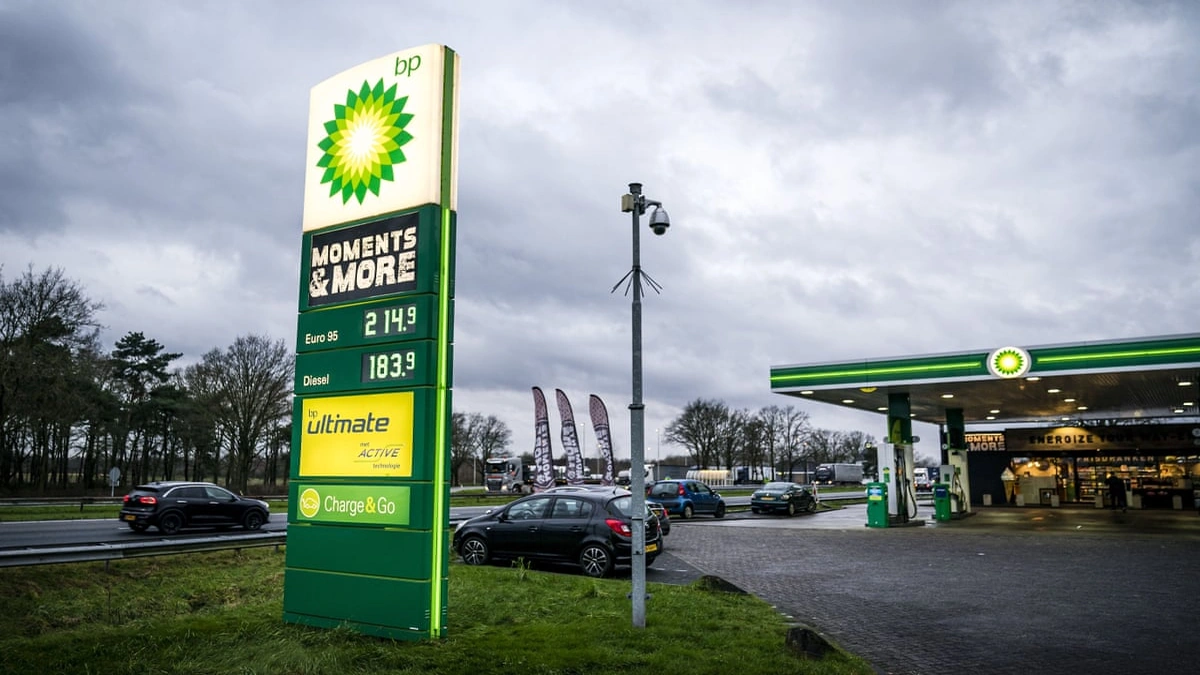Beyond the Headlines | Understanding BP and Its Real-World Impact
Alright, let’s talk BP . No, not blood pressure (though managing your finances might help that!). I’m talking about the energy giant, formerly known as British Petroleum. But beyond the news flashes and stock tickers, what’s really going on with BP, and why should someone in India even care? That’s what we’re diving into today.
Thank you for reading this post, don't forget to subscribe!I initially thought this was just another corporate story, but then I realized the implications are far broader, touching everything from global energy prices to the future of sustainable practices. Here’s the thing, its more than just fuel – it’s the future.
The ‘Why’ Behind BP’s Moves | More Than Just Oil and Gas

Don’t get me wrong, BP still deals heavily in oil and gas, but the real story is the company’s shifting strategy. What fascinates me is their investment in renewable energy. According to their latest reports, BP aims to significantly increase its low-carbon investments.
They’re talking about wind, solar, and even hydrogen. The implications of this transition are huge, especially for a country like India. Think about it: India’s energy demand is growing exponentially.
Meeting that demand sustainably is crucial, and companies like BP, investing in these sectors, can play a massive role. It’s not just about being ‘green’; it’s about long-term energy security and economic growth.
The other side of this coin? The impact of BP’s traditional operations. Oil spills, emissions, and environmental damage are all very real concerns. Holding these corporations accountable for their actions is vital, and understanding their policies is the first step.
A common mistake I see people make is thinking that these issues are far away. What happens with Oil and Gas pricing overseas always impacts the local market.
Decoding BP’s Strategy | What It Means for the Indian Economy

So, how does BP’s strategy directly affect India? It’s all about investment, technology transfer, and market dynamics. BP has made significant investments in India’s energy sector, including natural gas projects and renewable energy ventures.
These investments can create jobs, Boost local economies, and bring in cutting-edge technologies. But, and this is a big but, it’s not a one-way street. India needs to have strong regulatory frameworks in place to ensure that these investments are sustainable and benefit the country in the long run.
Let me rephrase that for clarity – strong regulation protects both the environment and India’s long-term economic interests. The Future of Energy and how companies like BP and Chevron will tackle it.
And there’s more. The global energy market is interconnected. What happens with BP’s production and pricing strategies impacts global oil prices, which, in turn, affects India’s import bill.
Understanding these dynamics allows for better policy decisions and helps in mitigating potential economic risks. The one thing you absolutely must double-check is that the Government regulatory bodies are setting clear expectations.
Navigating the Future | BP, Sustainability, and India’s Role

Let’s be honest, the transition to a sustainable energy future is complex. It’s not just about switching from fossil fuels to renewables overnight. It requires a multi-faceted approach involving governments, corporations, and individuals.
BP has committed to reducing its carbon footprint, but the pace of change is a constant debate. Is it fast enough? Are they truly committed, or is it just greenwashing? These are critical questions that need to be asked.
What fascinates me is the role India can play in this global transition. With its vast potential for renewable energy – solar, wind, and hydro – India can become a leader in sustainable development.
But it requires strategic partnerships, technological innovation, and a commitment to environmental protection. The Government plays a key role here. A stable and dependable source of Energy Transition is good for Indian society. But
So, what’s the takeaway? BP’s activities, both in traditional energy and in renewables, have a tangible impact on India.
Understanding these dynamics empowers you to make informed decisions, whether it’s about your investments, your career, or your lifestyle choices. The Global Energy Market and its intricacies impacts the price you pay for Petrol!
This is not just about BP, it’s about the larger energy landscape and India’s role in shaping a sustainable future.
FAQ | Understanding BP’s Impact – Quick Answers
What exactly does BP do in India?
BP has investments in various energy projects in India, including natural gas exploration and renewable energy ventures. They also have partnerships with Indian companies for fuel retail and other energy-related services.
How does BP’s renewable energy investment affect me?
BP’s investments in renewable energy can contribute to a cleaner environment, reduce reliance on fossil fuels, and potentially lower electricity costs in the long run.
What are the potential risks associated with BP’s operations?
Potential risks include environmental damage from oil spills, emissions contributing to climate change, and socio-economic impacts on local communities.
Is BP truly committed to sustainability?
BP has made commitments to reduce its carbon footprint and increase investments in renewable energy, but the extent of their commitment and the pace of change are subjects of ongoing debate.
Where can I find reliable information about BP’s activities?
You can find information on BP’s official website, reports from government agencies, and reputable news sources covering the energy sector.
What’s the difference between British Petroleum and BP?
There is no difference, BP used to be called British Petroleum.













